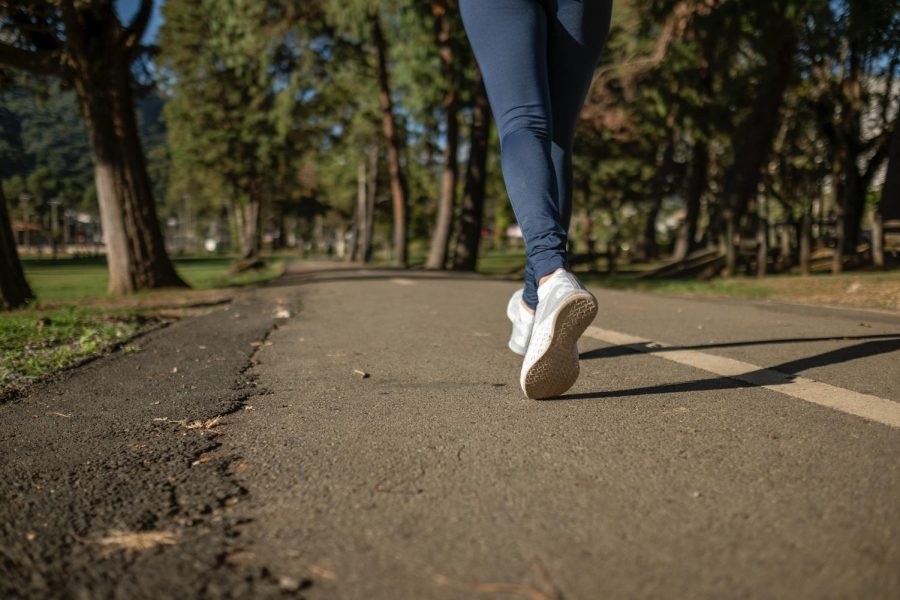Taking care of yourself as the year winds down
April 27, 2021
Finals week, (or—more-so—month): the most dreaded time of the year for a high school student. Between AP tests, finals, sports, and regular life, dealing with the stress of it all is vital to a student’s physical, and emotional well-being.
As reported by Matthew Glowiak, a university counselor, “Engaging in a self-care routine has been clinically proven to. . .improve concentration, minimize frustration. . .improve energy, and more,” making it that much more important for students to prioritize.
According to DSHS English teacher, Mrs. Anderson, “We spend a great deal of time telling other people to be kind to themselves. . .but we don’t extend ourselves that same courtesy. We’ve got to take time out to be good to US.”
Whether you find peace in the morning, or you want to find peace at night—find an opportunity to be with yourself. You can be a student, an athlete, a sibling, co-worker, anything, but at the end of the day, you are you—without the added labels.
Getting through
Taking a walk is one way experts recommend to destress. If you are worried about getting “stuck inside your own head,” listen to music while you walk.
- Say “yes” to the things you want to do:
- Hobbies, hanging out with friends, anything—make time for the things you love. This isn’t slacking off—it’s giving yourself a break to be everything but a student for a small part of your day.
- Have a change of scenery:
- Your regular study spot can get tedious to work in. Get up, and if you can, work outside, in your living room, maybe at a restaurant with Wi-Fi—anywhere that is different. New experiences or “daily exploration of our physical environment” can invoke positive emotions and well-being, per researchers for New York University.
- Stay “unplugged” in the morning:
- This can be hard with waking up so early, but try to avoid going on your phone and rushing straight into a routine; make your bed, get your bag ready, slowly wake up and have some time to yourself.
- Take breaks:
- Walk around, talk to somebody, go outside—just get up and active occasionally. Typically, breaks every 1-2 hours during studying is recommended as you don’t want to burn yourself out.
- Mind-Body connection:
- Stretching, meditation, or yoga is great for getting your mind and body right. Such things can help you to stop thinking so much, and to be more present in the moment. Additionally, you can take advantage of those oh-so-short 6 hours of sleep by providing yourself with a more restful, calm night.
- A clean space = A happy mind:
- Sometimes it is hard to keep track of the spaces around you because you just “don’t have the time” to prioritize such things—get out of that mindset! It’s okay to prioritize your spaces! It doesn’t have to be fully organized, just enough so that you feel accomplished. This can also bring confidence back up if you feel unproductive.
- Take care of your physical health:
- All aspects of health are important, not just mental health. Work out, go on runs, go on hikes—anything to take stress levels down with physical activity can give you a clear mind to get schoolwork done efficiently.
- Taking time—at night—for yourself:
- Journaling can be especially helpful, but this can include anything that you enjoy (preferably off of devices). Write about anything on your mind or write to organize your thoughts. Don’t knock it till you try it!
Not sure where to start?
Stretching is often associated with working out, but it is also beneficial after you have been sitting and working for awhile. Try getting up to stretch or walk around at least once an hour.
The self-care that you decide to pursue does not need to be huge or take up a specific amount of time—start small.
As a junior, AP student-athlete at Dubuque Senior High (DSH) described, “Some days are more work than others. . .I feel that sometimes I miss out on relaxing at home because I am so busy.”
So, how can you better organize your schedule for self-care? Here are 3 ways these practices can be put to work:
For AP students, simple changes of scenery, especially when you are tired, can be very beneficial to getting your mind in a better place.
For athletes, stretching at night can be beneficial to not only physical health but to relaxation and decompression. This is involving something beneficial to your athletic performance, AND your emotional health—it can be done!
For students in general, taking care of your body is important. Getting outside for a walk or a quick run before you start your homework can be most effective to getting you in “the zone”.
Overall, trying out new things and finding out what fits alright for you, is the most important objective. Don’t put too much stress on finding the perfect schedule—adjusts, then adjust again.
It’s okay to take breaks when you need them. Listen to yourself (and body) to strive towards a happier student-life.

